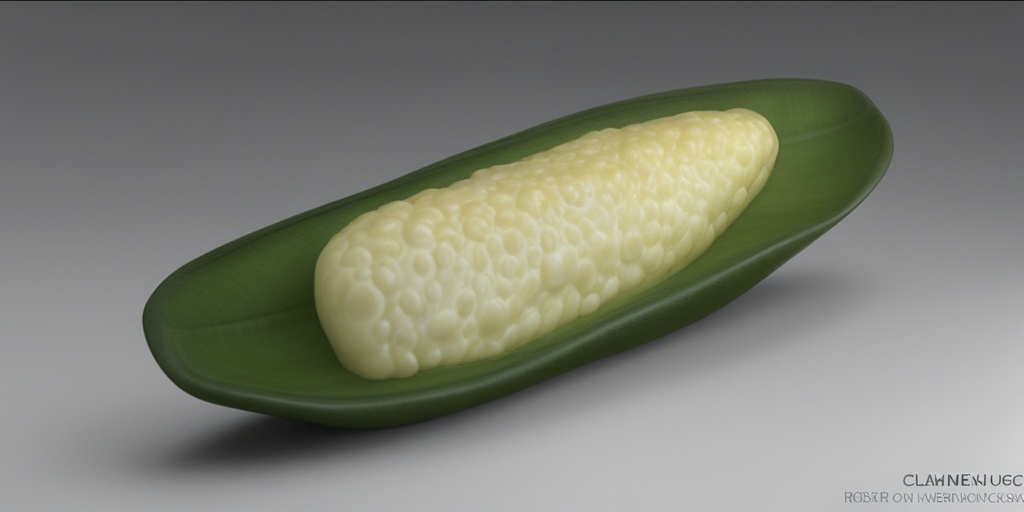What Is Mucous Membrane Pemphigoid?
Mucous membrane pemphigoid (MMP) is a rare autoimmune disorder that affects the mucous membranes, which are the thin layers of tissue that line various cavities in the body, such as the eyes, nose, mouth, and genitals. In MMP, the immune system mistakenly attacks the mucous membranes, leading to inflammation and blistering.
What Causes Mucous Membrane Pemphigoid?
The exact cause of MMP is still unknown, but research suggests that it may be triggered by a combination of genetic and environmental factors. In people with MMP, the immune system produces antibodies that attack the hemidesmosomes, which are the structures that anchor the epithelial cells to the basement membrane. This leads to the formation of blisters and ulcers on the mucous membranes.
How Is Mucous Membrane Pemphigoid Diagnosed?
MMP can be challenging to diagnose, as the symptoms can be similar to those of other conditions. A diagnosis is typically made through a combination of:
- Medical history and physical examination
- Biopsy of the affected tissue
- Immunofluorescence testing to detect the presence of antibodies
- Other diagnostic tests, such as blood tests and imaging studies, to rule out other conditions
If you’re experiencing symptoms that may be related to MMP, it’s essential to consult a healthcare professional for an accurate diagnosis and treatment plan. You can also use online resources like Yesil Health AI to find evidence-based health answers and get connected with a healthcare professional.
Mucous Membrane Pemphigoid Symptoms
The symptoms of MMP can vary depending on the location and severity of the condition. Common symptoms include:
Ocular Symptoms
In the eyes, MMP can cause:
- Redness and swelling of the eyelids
- Discharge or crusting of the eyes
- Blurred vision or sensitivity to light
- Ulcers or blisters on the conjunctiva or cornea
Oral Symptoms
In the mouth, MMP can cause:
- Ulcers or blisters on the lips, tongue, or gums
- Pain or difficulty eating or speaking
- Swollen or bleeding gums
Genital Symptoms
In the genitals, MMP can cause:
- Ulcers or blisters on the vulva, vagina, or penis
- Pain or discomfort during sexual activity
- Abnormal vaginal discharge or bleeding
Other symptoms of MMP may include skin rashes, nasal congestion, or difficulty swallowing. If you’re experiencing any of these symptoms, it’s crucial to consult a healthcare professional for an accurate diagnosis and treatment plan.
Remember, MMP is a rare condition, and an accurate diagnosis can take time. Be patient, and don’t hesitate to seek a second opinion if necessary. With the right treatment and care, it’s possible to manage the symptoms of MMP and improve your quality of life. 💕

Causes and Risk Factors of Mucous Membrane Pemphigoid
Mucous membrane pemphigoid (MMP) is a rare autoimmune disorder that affects the mucous membranes, which are the thin layers of tissue that line various body cavities, such as the eyes, nose, mouth, and genitals. While the exact causes of MMP are still not fully understood, research has identified several risk factors that may contribute to the development of this condition.
Autoimmune Response
The primary cause of MMP is an abnormal autoimmune response, where the immune system mistakenly attacks the healthy tissues in the mucous membranes. This leads to the production of antibodies that target the hemidesmosomes, which are the structures that anchor the epithelial cells to the basement membrane. As a result, the epithelial cells detach from the basement membrane, causing blisters and lesions to form.
Genetic Predisposition
Research suggests that genetic factors may play a role in the development of MMP. People with a family history of MMP or other autoimmune disorders may be more likely to develop the condition. Additionally, certain genetic mutations, such as those affecting the genes involved in the immune response, may increase the risk of developing MMP.
Environmental Triggers
Environmental factors, such as exposure to certain chemicals or medications, may trigger the onset of MMP in susceptible individuals. For example, some medications, such as nonsteroidal anti-inflammatory drugs (NSAIDs), may cause an allergic reaction that leads to the development of MMP.
Aging
MMP typically affects older adults, with the average age of onset being around 60-70 years. As people age, their immune system may become less effective, making them more susceptible to autoimmune disorders like MMP.
Diagnosing Mucous Membrane Pemphigoid
Diagnosing MMP can be challenging due to its rarity and the similarity of its symptoms to those of other conditions. A comprehensive diagnostic approach is essential to rule out other possibilities and confirm the diagnosis of MMP.
Clinical Examination
A thorough clinical examination is the first step in diagnosing MMP. A healthcare professional will examine the affected areas, looking for signs of blisters, lesions, and scarring. They may also perform a thorough medical history to identify any underlying conditions or risk factors.
Biopsy
A biopsy is often necessary to confirm the diagnosis of MMP. During a biopsy, a small tissue sample is taken from the affected area and examined under a microscope for signs of inflammation, blistering, and scarring.
Immunofluorescence Testing
Immunofluorescence testing is a specialized laboratory test that can help diagnose MMP. This test involves applying a fluorescent dye to a tissue sample, which helps to identify the presence of specific antibodies that are characteristic of MMP.
Other Diagnostic Tests
Other diagnostic tests, such as blood tests and imaging studies, may be ordered to rule out other conditions that may be causing similar symptoms. For example, a blood test may be used to check for the presence of certain antibodies that are associated with MMP.
🔍 Early diagnosis and treatment of MMP are crucial to preventing complications and improving outcomes. If you suspect you or a loved one may have MMP, it’s essential to consult with a healthcare professional for a proper diagnosis and treatment plan.

Treatment Options for Mucous Membrane Pemphigoid
Mucous membrane pemphigoid (MMP) is a rare autoimmune disorder that affects the mucous membranes, leading to blistering and scarring. While there is no cure for MMP, various treatment options are available to manage the symptoms and prevent complications. In this section, we’ll explore the different treatment approaches for MMP.
Topical Corticosteroids
Topical corticosteroids are the first line of treatment for MMP. These medications are applied directly to the affected areas to reduce inflammation and alleviate symptoms. Mild to moderate cases of MMP often respond well to topical corticosteroids, which can be in the form of creams, ointments, or gels.
Systemic Corticosteroids
In more severe cases of MMP, systemic corticosteroids may be prescribed. These medications are taken orally and work by reducing inflammation throughout the body. Systemic corticosteroids can have significant side effects, so they’re typically reserved for severe cases or when other treatments haven’t been effective.
Immunosuppressive Medications
Immunosuppressive medications, such as azathioprine or mycophenolate mofetil, can be used to suppress the immune system and prevent it from attacking the mucous membranes. These medications are often used in combination with corticosteroids to reduce the risk of side effects.
Dapsone
Dapsone is an antibiotic that has been shown to be effective in treating MMP. It works by reducing inflammation and preventing the formation of blisters. Dapsone is often used in combination with other medications to enhance its effectiveness.
Intravenous Immunoglobulin (IVIG)
Intravenous immunoglobulin (IVIG) is a treatment that involves infusing antibodies into the bloodstream to reduce inflammation and prevent further damage to the mucous membranes. IVIG is typically reserved for severe cases of MMP that haven’t responded to other treatments.
Managing Mucous Membrane Pemphigoid Flares
MMP flares can be unpredictable and challenging to manage. However, by following a few simple tips, you can reduce the severity and frequency of flares.
Identify and Avoid Triggers
Identifying and avoiding triggers is crucial in managing MMP flares. Common triggers include stress, certain medications, and environmental factors. Keeping a symptom journal can help you track your symptoms and identify potential triggers.
Practice Good Oral Hygiene
Good oral hygiene is essential in preventing MMP flares. Brushing and flossing regularly can help reduce the risk of oral infections, which can trigger MMP flares.
Stay Hydrated
Staying hydrated is vital in managing MMP flares. Drinking plenty of water can help keep your mucous membranes moist and reduce the risk of dryness and irritation.
Get Enough Rest
Getting enough rest is crucial in managing MMP flares. Aim for 7-8 hours of sleep per night to help your body recover from the physical and emotional stress of MMP.
By understanding the treatment options and learning how to manage MMP flares, you can take control of your condition and improve your quality of life. Remember to work closely with your healthcare provider to develop a personalized treatment plan that suits your needs. 💊

Complications of Mucous Membrane Pemphigoid
Mucous membrane pemphigoid (MMP) is a rare autoimmune disorder that affects the mucous membranes, leading to blistering and scarring. While the condition itself can be challenging to manage, it’s essential to be aware of the potential complications that can arise if left untreated or poorly managed.
Eye Complications
One of the most common and severe complications of MMP is eye involvement. The condition can cause scarring of the conjunctiva, leading to dry eye syndrome, which can further increase the risk of corneal ulcers and vision loss. In severe cases, MMP can even lead to blindness. It’s crucial to seek immediate medical attention if you experience any eye symptoms, such as redness, pain, or blurred vision.
Oral Complications
MMP can also affect the oral mucosa, leading to painful blisters and ulcers in the mouth. These lesions can make eating and speaking difficult, and if left untreated, can lead to malnutrition and dehydration. Furthermore, the constant inflammation can increase the risk of oral cancer.
Respiratory Complications
In some cases, MMP can affect the respiratory tract, leading to bronchitis, pneumonia, and even respiratory failure. It’s essential to monitor any respiratory symptoms, such as coughing, wheezing, or shortness of breath, and seek medical attention promptly if they persist or worsen.
Other Complications
In addition to the above complications, MMP can also lead to skin lesions, genital lesions, and gastrointestinal problems. In rare cases, the condition can even affect the central nervous system, leading to neurological symptoms such as headaches, seizures, and cognitive impairment.
Living with Mucous Membrane Pemphigoid
While MMP can be a challenging condition to live with, there are several ways to manage its symptoms and improve your quality of life.
Dietary Changes
Making dietary changes can help alleviate MMP symptoms. A soft food diet can reduce discomfort while eating, and avoiding spicy or acidic foods can help minimize irritation. Additionally, increasing your intake of omega-3 fatty acids and vitamin D may help reduce inflammation.
Lifestyle Modifications
Simple lifestyle modifications can also make a significant difference. Practicing good oral hygiene, using artificial tears to lubricate the eyes, and avoiding irritating substances can help reduce the risk of complications.
Emotional Support
Living with MMP can be emotionally challenging, and it’s essential to seek emotional support from family, friends, or support groups. Sharing your experiences and connecting with others who understand your struggles can help you cope with the emotional toll of the condition.
Remember, while MMP can be a challenging condition to live with, it’s not impossible. By being aware of the potential complications and taking proactive steps to manage your symptoms, you can improve your quality of life and reduce the risk of long-term damage. 💪

Frequently Asked Questions about Mucous Membrane Pemphigoid
What is Mucous Membrane Pemphigoid?
Mucous membrane pemphigoid is a rare autoimmune disorder that affects the mucous membranes, which are the thin layers of tissue that line various body cavities, such as the eyes, mouth, nose, throat, and genitals.
What are the symptoms of Mucous Membrane Pemphigoid?
The symptoms of mucous membrane pemphigoid can vary depending on the location and severity of the condition. Common symptoms include:
- Blisters or sores on the mucous membranes
- Redness and inflammation of the affected areas
- Discharge or crusting of the eyes
- Pain or discomfort in the affected areas
- Dryness or irritation of the eyes, mouth, or throat
How is Mucous Membrane Pemphigoid diagnosed?
Mucous membrane pemphigoid is typically diagnosed through a combination of:
- Medical history and physical examination
- Biopsy of the affected tissue
- Immunofluorescence testing to detect antibodies
What is the treatment for Mucous Membrane Pemphigoid?
Treatment for mucous membrane pemphigoid usually involves a combination of:
- Corticosteroids to reduce inflammation
- Immunosuppressive medications to suppress the immune system
- Pain management medications
- Topical treatments, such as creams or ointments, to soothe the affected areas
What is the life expectancy of someone with Mucous Membrane Pemphigoid?
The life expectancy of someone with mucous membrane pemphigoid is generally good, but it can vary depending on the severity of the condition and the effectiveness of treatment. With proper treatment, most people with mucous membrane pemphigoid can lead normal lives.
How does Mucous Membrane Pemphigoid differ from Pemphigus Vulgaris?
Mucous membrane pemphigoid and pemphigus vulgaris are both autoimmune disorders that affect the skin and mucous membranes, but they have distinct differences:
- Mucous membrane pemphigoid primarily affects the mucous membranes, while pemphigus vulgaris affects the skin and mucous membranes.
- Mucous membrane pemphigoid tends to be less severe than pemphigus vulgaris.
Can Mucous Membrane Pemphigoid be prevented?
There is no known way to prevent mucous membrane pemphigoid, as the exact cause of the condition is still unknown. However, early detection and treatment can help manage the condition and prevent complications.
What is the ICD-10 code for Mucous Membrane Pemphigoid?
The ICD-10 code for mucous membrane pemphigoid is L12.0.
What role does diet play in managing Mucous Membrane Pemphigoid?
While there is no specific diet that can cure mucous membrane pemphigoid, a healthy diet rich in fruits, vegetables, and whole grains can help manage the condition and reduce inflammation. Avoiding spicy or acidic foods that can irritate the mucous membranes may also be helpful.
How does Mucous Membrane Pemphigoid affect the eyes?
Mucous membrane pemphigoid can cause eye problems, such as:
- Dryness or irritation of the eyes
- Discharge or crusting of the eyes
- Redness or inflammation of the eyes
- Vision problems or blindness in severe cases
What are some natural remedies for Mucous Membrane Pemphigoid?
While there is no cure for mucous membrane pemphigoid, some natural remedies may help manage the condition, such as:
- Aloe vera gel to soothe the skin and mucous membranes
- Omega-3 fatty acids to reduce inflammation
- Probiotics to promote gut health
- Vitamin D supplements to boost the immune system
Can Mucous Membrane Pemphigoid be inherited?
There is no clear evidence that mucous membrane pemphigoid is inherited, but it may be more common in people with a family history of autoimmune disorders.
What is the prognosis for Mucous Membrane Pemphigoid?
The prognosis for mucous membrane pemphigoid is generally good, but it can vary depending on the severity of the condition and the effectiveness of treatment. With proper treatment, most people with mucous membrane pemphigoid can lead normal lives.




